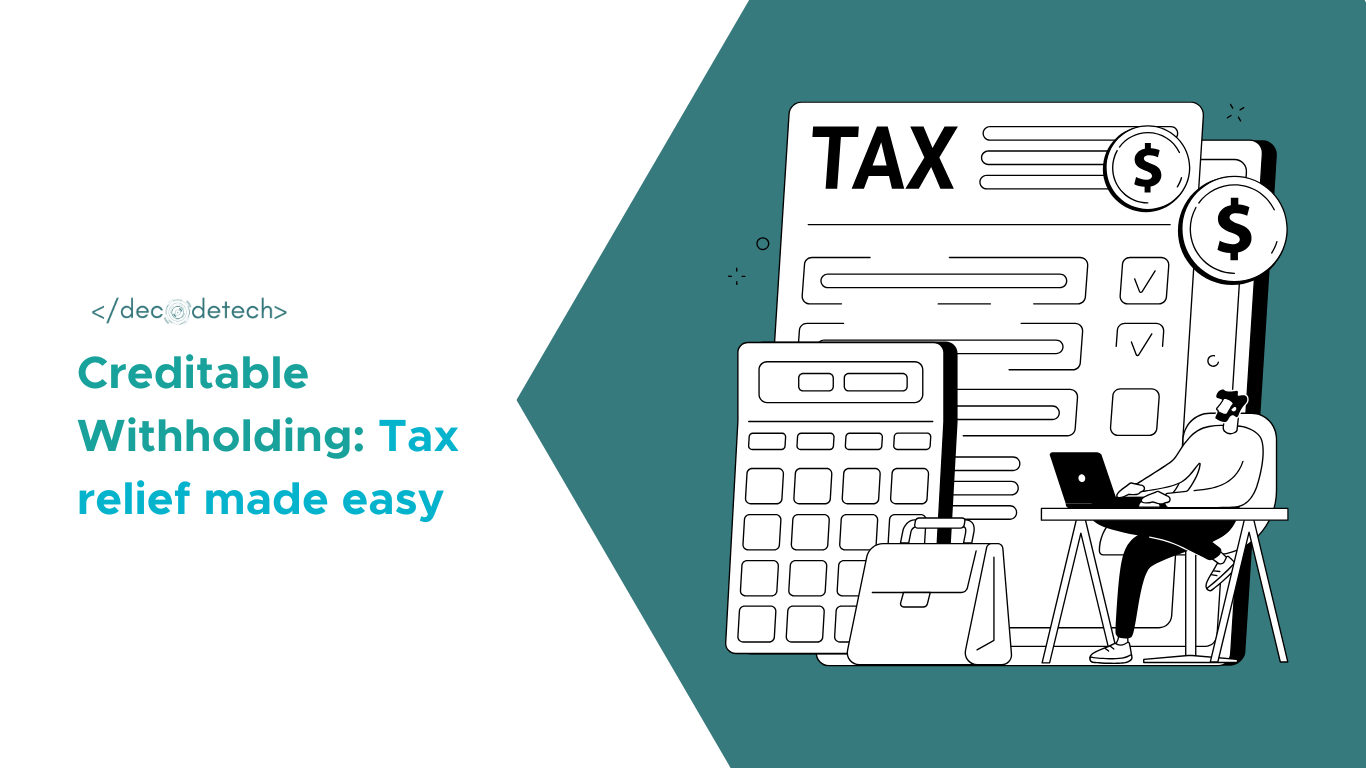Business Insights, HR and Payroll Tips and How-To
Philippines Tax Compliance: What You Need to Know About Creditable Withholding Tax (CWT)
04 Nov

Creditable Withholding Tax (CWT) is a tax system in the Philippines that allows the government to collect income taxes at the source before the income is received by the taxpayer. Under this system, the government requires certain businesses or entities to withhold a percentage of payments due to payees—such as suppliers, service providers, or independent contractors—and remit this directly to the Bureau of Internal Revenue (BIR). This system helps ensure tax compliance and supports regular revenue collection.
What is Creditable Withholding Tax?
Creditable Withholding Tax (CWT) is a pre-paid income tax on specific types of payments. The tax withheld is creditable, meaning it can be deducted from the taxpayer’s income tax payable at the end of the taxable year. This system essentially allows the government to collect taxes throughout the year, making it more manageable for the taxpayer to settle their final tax liabilities.
Who Needs to Withhold and Remit CWT?
The Bureau of Internal Revenue (BIR) requires certain businesses and government agencies to act as withholding agents. These agents include corporations, self-employed individuals, partnerships, and some government institutions. Specific transactions, like payments for professional services, rentals, commissions, and supplies, are subject to CWT, meaning these withholding agents must deduct a percentage from these payments and remit it directly to the BIR.
For example, if a company pays for professional services, a percentage of that payment must be withheld and remitted to the BIR on behalf of the service provider. This helps reduce the service provider’s tax liability at the end of the year since the withheld tax acts as an advance payment.
How is the CWT Rate Determined?
The CWT rate varies based on the nature of the transaction and the classification of the income recipient. The BIR publishes guidelines on the applicable CWT rates, which generally range from 1% to 15%, depending on the type of income and the recipient’s classification.
Some common CWT rates include:
- Professional services: 5% to 15%
- Rentals: 5%
- Purchase of goods or supplies: 1%
It’s essential for withholding agents to review the latest BIR guidelines or consult tax professionals to ensure accurate CWT rates are applied.
Filing and Remittance of CWT
Withholding agents must file and remit CWT to the BIR either monthly or quarterly. The deadline depends on the type of transaction and the BIR’s filing guidelines. The tax should be reported using BIR Form 1601-E for regular withholding tax on expenses, and BIR Form 1604-E for the annual information return.
Additionally, withholding agents must issue a Certificate of Creditable Withholding Tax (BIR Form 2307) to payees, summarizing the amount withheld and remitted. This certificate is crucial for the payee, as it serves as proof of the tax credits they can apply to their annual income tax return.
Impact on Taxpayers
CWT has both advantages and implications for taxpayers:
- Advance Tax Payments: The withheld amount helps taxpayers reduce their final income tax liability. However, some may find that withholding adds complexity, requiring careful tracking and documentation.
- Compliance Obligations: Both withholding agents and payees must ensure compliance with BIR regulations. Non-compliance can lead to penalties, surcharges, and interest payments.
Types of Creditable Withholding Tax
In the Philippines, CWT can be broadly classified based on the type of transaction or income. Here are some of the main categories:
- Professional Fees and Talent Fees: Payments made to professionals (such as doctors, lawyers, and accountants) and talent fees paid to artists or entertainers are subject to CWT. Rates vary from 5% to 15% based on income classification.
- Rentals: Payments for renting properties or equipment incur a 5% withholding tax. This applies to both commercial and residential property leases if the tenant is required to act as a withholding agent.
- Contractors and Subcontractors: Payments to contractors and subcontractors for services like construction, repairs, or maintenance are subject to a 2% withholding tax.
- Goods and Services: Purchases from suppliers for goods or services (if over a certain threshold) are typically subject to a 1% withholding tax. This also applies to suppliers providing goods that are regularly purchased.
When CWT Does Not Apply
While CWT applies to a wide range of transactions, there are some exemptions, including:
- Individual taxpayers not classified as withholding agents: Typically, individuals who do not engage in business or are not withholding agents do not need to withhold taxes.
- Certain government transactions: Some government transactions may not be subject to CWT or may fall under specific tax guidelines.
- Small transactions: Payments below certain thresholds may not require withholding, depending on the nature of the transaction.
Creditable Withholding Tax (CWT) is essential in the Philippine tax system, allowing the government to efficiently collect revenue while easing the tax burden at year-end for taxpayers. For withholding agents, it’s vital to stay updated on current rates, proper forms, and compliance deadlines to avoid penalties. For payees, understanding how CWT impacts final tax liabilities and ensuring proper documentation is equally important for accurate tax reporting.
The BIR frequently updates tax regulations, so consulting with tax professionals or regularly reviewing BIR announcements can help maintain compliance and optimize tax outcomes.
Recent Posts
- PhilHealth Online Registration: A Guide for New Employees and Employers February 24, 2026
- Pag-IBIG MP2: How Employers Can Support Employee Savings Programs Through Payroll System February 20, 2026
- 2026 People Power Revolution Holiday: What Employers Need to Know About Pay Rules February 19, 2026
- SSS Contributions: A Guide for Employees and HR Teams February 13, 2026
- Virtual Pag-IBIG: What Employers and Employees Need to Know in the Philippines February 10, 2026